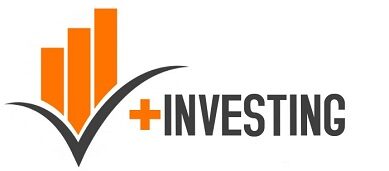When investors consider which type of fund to invest in, the debate between active and passive equity funds can become heated. In the simplest terms, an active equity fund is managed by a portfolio manager who decides what securities to buy and sell to outperform indexes like the S&P 500. By contrast, passive equity funds track indices such as the S&P 500, investing in all stocks within that index in proportion to their respective weights.
Active vs. passive equity
The key question investors have to answer when deciding whether they should choose an active or passive equity fund is whether they believe that a professional money manager can outperform a benchmark index over time. Historically, performance studies have shown that active equity fund managers rarely outperform their benchmark indices.
The main argument for passive equity funds is cost-effectiveness. Passively managed funds are usually much cheaper than actively managed funds because they involve less trading and fewer transaction costs. Additionally, many passive funds use index replication strategies instead of seeking out “alpha” opportunities, reducing costs. As such, the average expense ratio of a passively managed fund tends to be significantly lower than an actively managed fund. These savings can then be passed onto investors in the form of higher returns due to more significant compounded growth over time.
On the other hand, proponents of active management believe that portfolio managers can generate higher returns than the benchmark index by selecting stocks that they believe will outperform their respective indices. They also tend to be able to predict market downturns and make investments accordingly, thus avoiding losses during difficult periods. Active managers are generally more hands-on than passive managers, using fundamental analysis and technical indicators to select stocks with better risk/reward profiles than the overall market offers.
Ultimately, each investor has to decide whether active or passive fund management best fits their investment objectives. While cost savings may appeal to passively managed funds, investors who feel confident in a portfolio manager’s ability to generate alpha may opt for an actively managed fund. In either case, investors should thoroughly research any fund before making an investment decision.
What are the risks?
No matter which type of fund investors choose, they should always be mindful that stock markets can be volatile, and losses may occur in the short term. Therefore, ensuring that each fund’s risk profile aligns with its experience level and long-term goals is essential to reduce potential downside risk. With careful consideration and due diligence, investors can find funds suitable for their needs and help them reach their financial objectives over time.
How to invest in an equity fund in Singapore
Investing in an equity fund in Singapore can be an excellent way to diversify your trading portfolio and take advantage of the potential growth the stock market offers. Before making any investments, however, you should ensure that your money is well-managed.
First, deciding if you prefer an active or passive investment approach is crucial. Active funds involve more research and require more work from the portfolio manager, while passive funds involve less work and involve tracking existing indices. Once you have decided on a strategy, you must thoroughly research and look online for ETFs to find one that fits your financial goals.
Next, investors must understand how much risk they will take when investing in ETFs and other equity funds. Generally speaking, higher risk means higher returns over time and chances of loss. Understanding how much risk you are comfortable with will help you choose the right fund. Additionally, many investors opt for a combination of active and passive funds to balance their portfolios while taking advantage of potential gains from either option.
Finally, once you have chosen an equity fund, it is essential to monitor it regularly; this is especially true if you’re investing actively, as markets tend to fluctuate quickly. By keeping tabs on your investments, you can ensure they perform as expected and adjust accordingly if necessary.
The bottom line
Both active and passive equity funds offer advantages and disadvantages for investors, depending on their specific needs and goals. Careful analysis of individual funds should be undertaken before making any decisions to ensure that the fund selected will help investors reach their desired returns. By taking the time to properly evaluate all available options, investors can use either active or passive equity funds for long-term success and wealth accumulation.

